Delta Waterfowl Expands Hen House Program to Produce More Mallards

The Duck Hunters Organization plans to add 2,100 nest structures this winter in key breeding areas
BISMARCK, NORTH DAKOTA — Even though most of the continent’s ducks won’t start laying eggs until April or May, Delta Waterfowl’s Hen House contractors are working throughout the winter to ensure mallards have more safe nest sites this spring.
Delta plans to add 2,100 Hen Houses to the breeding grounds this winter, representing more than 17% growth on the program’s existing 12,250 nest structures.
 “Delta continues to expand our impact for ducks and duck hunters throughout North America,” said Matt Chouinard, waterfowl programs director. “It’s another year of significant growth of Delta’s Hen House Program, adding to our record number of nest structures to produce more ducks.”
“Delta continues to expand our impact for ducks and duck hunters throughout North America,” said Matt Chouinard, waterfowl programs director. “It’s another year of significant growth of Delta’s Hen House Program, adding to our record number of nest structures to produce more ducks.”
Delta’s 2025 Duck Production Program expansion calls for 900 new Hen Houses to be installed in Saskatchewan, 450 in Manitoba, 400 in Alberta, 200 in South Dakota, and 150 in North Dakota. The additions would bring the total above 14,000 Hen Houses ready and waiting for ducks to nest this spring.
A growing team of 46 Hen House contractors will be busy installing new structures and performing annual maintenance during January, February, and March while weather conditions allow easiest access. Contractors visit each existing Hen House to make any needed repairs and to refresh the flax nesting materials in the cylinder.
Delta has added a Hen House distribution hub in Saskatchewan, as well as regional biologists Ryan Kroeger in Canada and Zac Copeland in the United States to help deliver the organization’s Duck Production programs.
“We’re growing at a faster pace than we ever have, and with that growth, we’re looking to make our programs more efficient,” Chouinard said. “We’re increasing our capacity to produce ducks. It’s exciting.”
Delta’s Hen House program began on the Canadian prairie in 1991, when the first structures were installed in Manitoba wetlands.
The structures are used primarily by mallards. Delta places Hen Houses strategically in areas of the breeding grounds that attract high densities of nesting ducks but where grassland nesting cover is scarce. In some intensely farmed areas of the prairies, overly abundant predators such as raccoons and skunks exact a heavy toll on duck nests. Hen Houses give hens a place to nest that’s out of reach from many nest predators. Research has shown that mallard hens using a Hen House are up to 12 times more likely to hatch a nest than hens that nest in nearby grass.
“Hen Houses are a proven efficient and effective way to produce more ducks, and they fit well with farming activity,” said Joel Brice, Delta’s chief conservation officer. “They hatch a lot of mallards, the most popular duck among North American hunters.”
Banding return data shows that mallards hatched on the U.S. and Canadian prairies migrate throughout all four flyways, so Delta’s Hen Houses boost the fall flight from coast to coast.
Delta received recent grants in support of the Hen House Program from North Dakota Outdoor Heritage Fund, Wildlife Habitat Canada, and the Manitoba Conservation Trust. In addition, donor Jim Richardson contributed a major gift to build and install new structures in Canada.
Duck Production has always been at the forefront of Delta Waterfowl’s mission. Delta continues to ramp up through the Million Duck Campaign, a $250 million fundraising effort with a goal of adding 1 million ducks to the fall flight every year. At full maturity, the Million Duck Campaign will result in more than 110,000 Hen Houses to welcome hen mallards each spring across the North American breeding grounds.
“MDC ensures that we can continue to add impact to Delta’s programs,” Brice said. “Our goal is to dramatically scale up delivery of Delta’s Hen House program to produce more ducks and make every fall flight stronger.”
Delta Waterfowl is The Duck Hunters Organization, a leading conservation group working to produce ducks and secure the future of waterfowl hunting in North America. Visit deltawaterfowl.org.
For more information about Delta’s innovative Hen House Program, contact Matt Chouinard at mchouinard@deltawaterfowl.org or (701) 222-8857 ext. 5209.

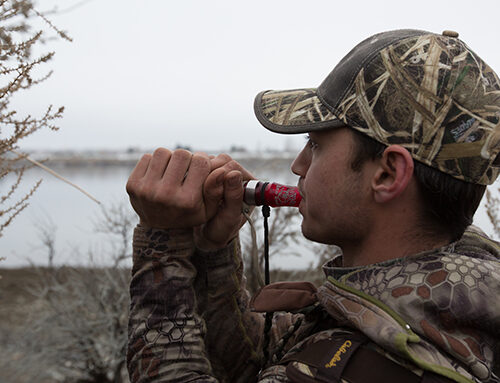
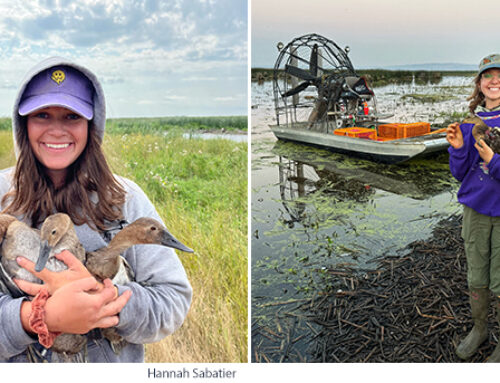
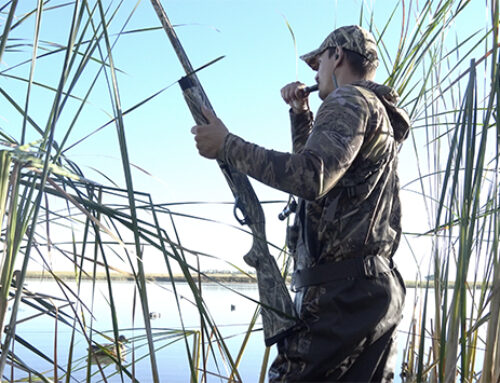
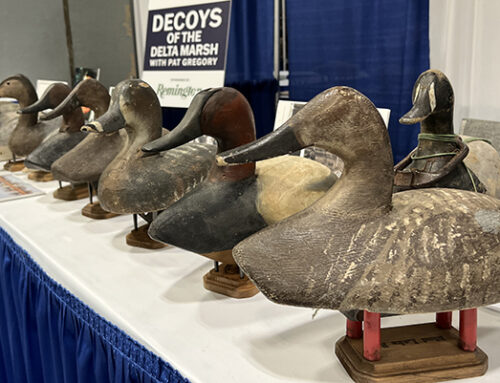
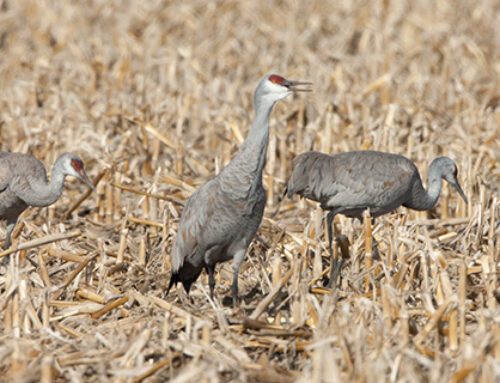
Leave A Comment